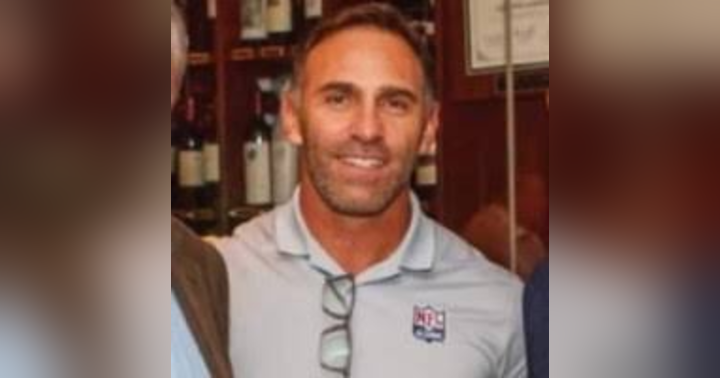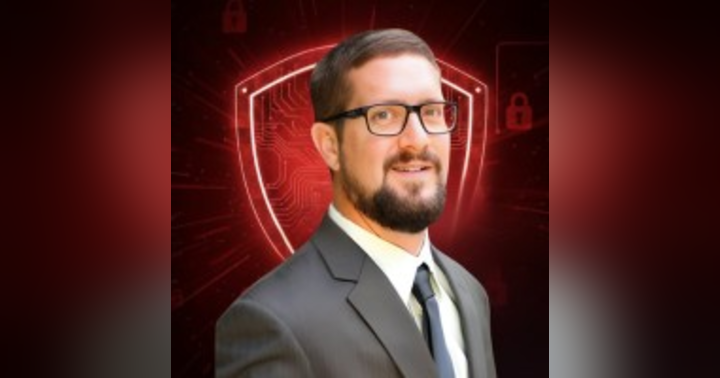From Piano Lessons to EdTech Innovator: Patrick Boylan's Musical Journey

In this blog post, we delve into the fascinating journey of Patrick Boylan, a musician and entrepreneur who transformed his uninspiring beginnings in traditional piano lessons into a passion for self-directed learning and ultimately, the co-founding of MuseFlow, an innovative music education platform. From early disillusionment to a deep dive into musical theater and improvisation, Patrick's path highlights the power of personalized learning and the importance of making education engaging and accessible. This exploration complements our recent podcast episode, Patrick Boylan, where we discussed his experiences in detail. Be sure to check it out to hear directly from Patrick about his experiences and insights.
Introduction: Patrick Boylan's Unconventional Path to EdTech
Patrick Boylan's story is a testament to the idea that passion, coupled with a desire to learn on one's own terms, can lead to extraordinary achievements. His journey began in a way that many can relate to: traditional music lessons. However, unlike some, Patrick found these lessons stifling, leading him to seek alternative paths to musical mastery. This self-directed exploration became the cornerstone of his musical development and, later, the driving force behind MuseFlow, a platform revolutionizing how people learn music. His experience highlights the importance of understanding different learning styles and catering to individual needs within the educational landscape. It’s a story of recognizing a problem, and then building a great solution.
The Uninspiring Piano Lessons: A Turning Point
For eight years, Patrick diligently attended piano lessons, following the prescribed curriculum and practicing the assigned pieces. However, something was missing. The traditional approach, while structured and comprehensive, failed to ignite his passion for music. He found the rote memorization and rigid structure uninspiring, and the joy of music was slowly being replaced by a sense of obligation. This experience serves as a critical point in his story. It highlights a common problem with traditional education: the tendency to prioritize standardized methods over individual learning styles. The lack of personalization and engagement can often lead to frustration and disinterest, particularly in creative fields like music. Patrick's experience is a reminder that learning should be an enjoyable and fulfilling experience, not a chore. The repetitive nature of exercises without clear application to real musical pieces left him wanting more. He longed to create, to improvise, to express himself through music, but the traditional lessons offered little room for such exploration. This disconnect between his aspirations and the structured curriculum ultimately led him to seek alternative ways to learn and engage with music.
Self-Directed Musical Exploration: Improvisation and Musical Theater
Disillusioned with formal lessons, Patrick decided to take control of his musical education. He started by exploring improvisation, experimenting with different sounds and melodies on the piano. This freedom to create and explore ignited a new passion within him. He also delved into the world of musical theater, drawn to its storytelling and emotional depth. He began sight-reading musical theater scores, gradually building his skills and understanding of musical structure and harmony. This self-directed learning was a game-changer for Patrick. He was motivated by his own interests and driven by a desire to learn and improve. He discovered the joy of learning through exploration and experimentation, a stark contrast to the rigid structure of his formal lessons. Musical theater, in particular, provided a rich and engaging context for learning. By immersing himself in the scores of his favorite shows, he was able to develop his sight-reading skills, expand his musical vocabulary, and gain a deeper understanding of musical storytelling. This self-directed approach fostered a sense of ownership and responsibility for his learning, which ultimately led to greater motivation and achievement. The ability to choose his own learning path and focus on his passions transformed his relationship with music, turning it from a chore into a source of joy and fulfillment.
MuseFlow: The 'Duolingo of Music Education'
Patrick's experiences with both traditional music lessons and self-directed learning inspired him to create a better way to learn music. This led to the co-founding of MuseFlow, an edtech startup designed to make music education more engaging, efficient, and accessible. Often described as the "Duolingo of Music Education," MuseFlow uses a gamified approach to teach music through bite-sized sight-reading challenges. The platform adapts to each user's pace and level, generating custom sheet music that isolates and integrates new skills. This personalized approach allows learners to progress at their own speed, focusing on the areas where they need the most improvement. MuseFlow addresses the shortcomings of traditional music education by prioritizing engagement and personalization. The gamified format makes learning fun and motivating, while the adaptive learning algorithms ensure that each user receives the right level of challenge. By breaking down complex musical concepts into smaller, manageable chunks, MuseFlow makes learning more accessible to beginners. The platform also provides immediate feedback, allowing learners to track their progress and identify areas for improvement. This combination of engagement, personalization, and accessibility has made MuseFlow a popular choice for aspiring musicians of all ages and skill levels. The core mission is to foster a love of music and empower individuals to pursue their musical goals, regardless of their background or prior experience.
How MuseFlow Makes Learning Engaging and Efficient
MuseFlow's success lies in its ability to make learning music fun and engaging. The platform utilizes game mechanics such as points, badges, and leaderboards to motivate learners and keep them coming back for more. Bite-sized lessons and immediate feedback provide a sense of accomplishment, encouraging learners to continue practicing and improving. The platform also offers a wide variety of musical styles and genres, allowing learners to explore their own interests and discover new music. By focusing on sight-reading as a core skill, MuseFlow helps learners develop a strong foundation in music theory and notation. This enables them to learn new pieces quickly and efficiently, unlocking a world of musical possibilities. The platform's adaptive learning algorithms ensure that each learner is challenged appropriately, preventing frustration and maximizing learning outcomes. The combination of gamification, personalization, and focus on core skills makes MuseFlow a highly effective tool for music education. It empowers learners to take control of their musical journey and achieve their goals in a fun and engaging way. Furthermore, the community aspect of MuseFlow, where users can share their progress and collaborate with others, fosters a supportive and motivating learning environment.
Adaptive Learning: Custom Sheet Music and Skill Integration
A key feature of MuseFlow is its adaptive learning system. The platform generates custom sheet music tailored to each user's skill level, focusing on specific areas where they need improvement. For example, if a user is struggling with rhythms, MuseFlow will generate exercises that focus specifically on rhythm patterns. As the user progresses, the platform gradually integrates new skills and concepts, ensuring a smooth and progressive learning experience. This adaptive approach is a significant departure from traditional music education, which often relies on a one-size-fits-all curriculum. By personalizing the learning experience, MuseFlow maximizes learning efficiency and keeps learners engaged. The platform also provides detailed feedback on each exercise, helping learners understand their mistakes and identify areas for improvement. This personalized feedback loop is essential for effective learning and helps learners develop a deeper understanding of musical concepts. The custom sheet music generated by MuseFlow is designed to be both challenging and accessible, ensuring that learners are constantly pushed to improve without becoming overwhelmed. This balance between challenge and accessibility is crucial for maintaining motivation and fostering a positive learning experience. The adaptive learning system is the heart of MuseFlow, enabling it to provide a truly personalized and effective music education experience.
The Flow State: MuseFlow's Impact on Learning and Enjoyment
Patrick has spoken extensively about the concept of "flow state" and its importance in learning. Flow state, also known as being "in the zone," is a state of deep focus and engagement where individuals are fully immersed in the task at hand. MuseFlow is designed to help learners enter this flow state by providing a challenging yet achievable learning experience. The platform's bite-sized lessons and immediate feedback allow learners to quickly see progress, which fosters a sense of accomplishment and motivates them to continue learning. The gamified format also helps to create a sense of playfulness and enjoyment, which further enhances the learning experience. When learners are in a flow state, they are more likely to retain information and develop a deeper understanding of the subject matter. They are also more likely to enjoy the learning process, which can lead to increased motivation and a lifelong love of music. MuseFlow's focus on engagement, personalization, and challenge helps learners enter the flow state and unlock their full potential as musicians. By making learning fun and rewarding, MuseFlow empowers individuals to pursue their musical goals and experience the joy of creating music. This ties directly into Patrick’s philosophy of creating a learning environment where individuals thrive and find deep satisfaction in their progress.
Conclusion: Patrick Boylan's Journey and the Future of Music Education
Patrick Boylan's journey from uninspired piano student to EdTech innovator is a compelling example of the power of self-directed learning and the importance of making education engaging and accessible. His experience highlights the shortcomings of traditional music education and the potential of technology to transform the learning experience. MuseFlow, the platform he co-founded, is a testament to his vision of a more personalized and effective way to learn music. By combining gamification, adaptive learning, and a focus on core skills, MuseFlow is empowering individuals to pursue their musical goals and experience the joy of creating music. To hear more about Patrick's experiences and his vision for the future of music education, be sure to check out our podcast episode, Patrick Boylan. His story is an inspiration to educators, entrepreneurs, and anyone who believes in the power of lifelong learning. As technology continues to evolve, we can expect to see even more innovative approaches to education emerge, making learning more accessible, engaging, and effective for learners of all ages and backgrounds. Patrick's work with MuseFlow is at the forefront of this movement, shaping the future of music education and empowering individuals to unlock their full musical potential.









